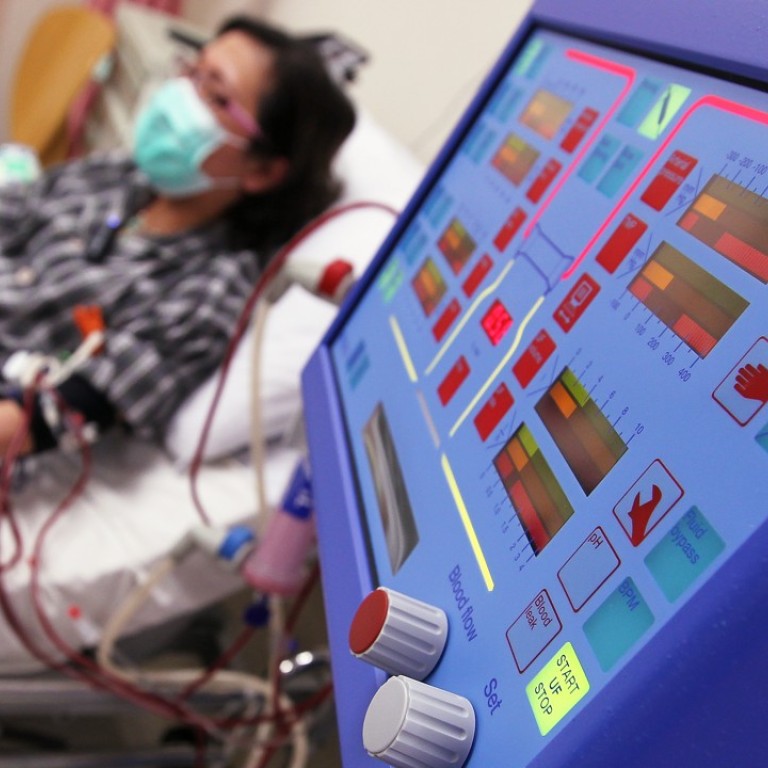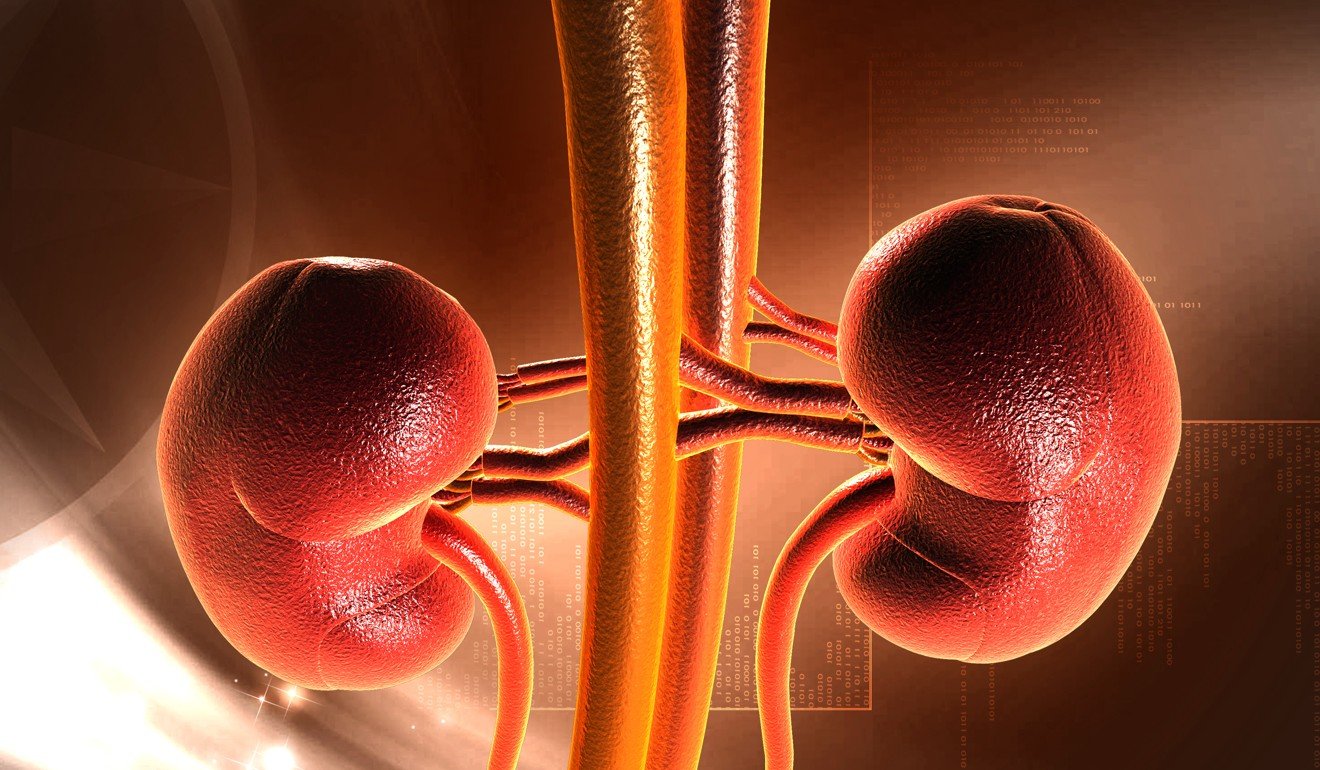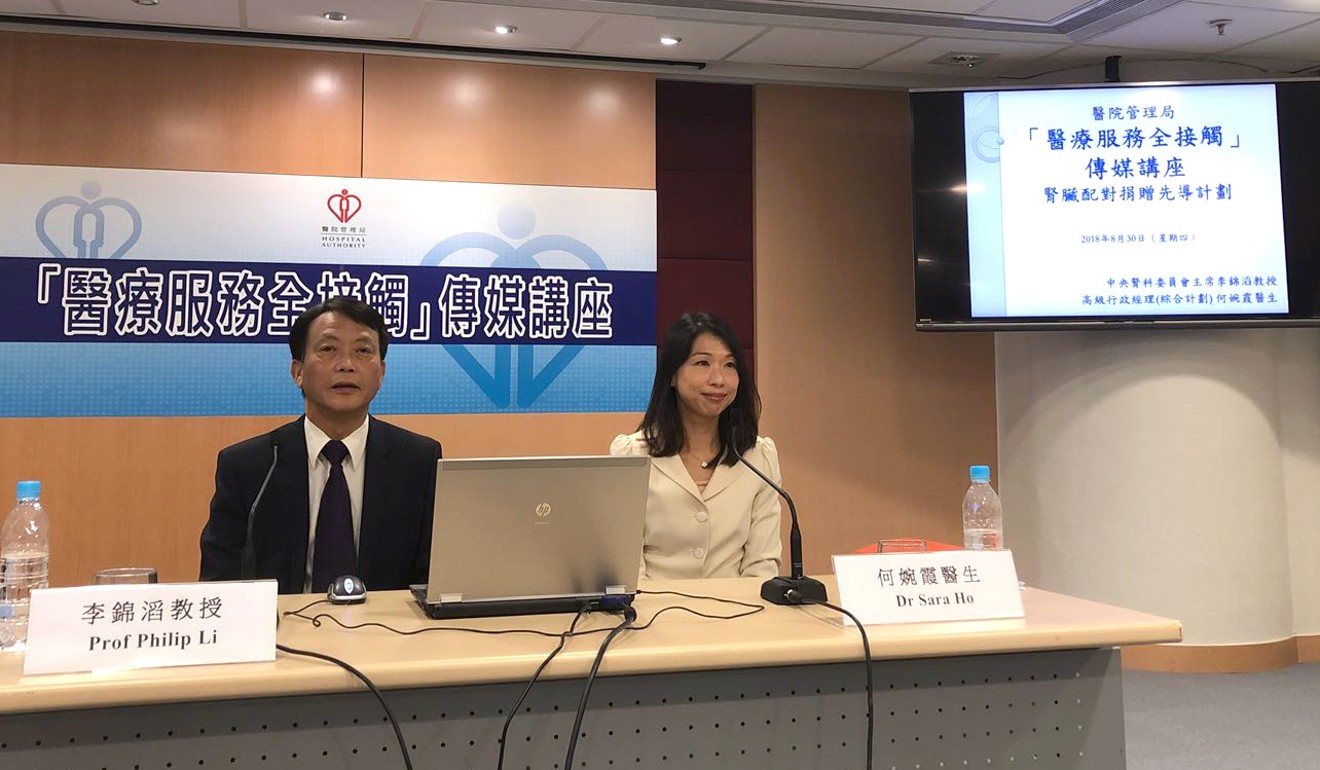
New kidney donation scheme starts in October after change in Hong Kong law allows strangers to donate organs to patients
This is aimed at speeding up the long waiting time for a suitable organ and surgeries will be done at four of the city’s 43 public hospitals
From October, kidney transplant patients whose family members are incompatible donors can join a scheme that will speed up the time taken to get a new organ.
The paired organ donation arrangement, made legal after Hong Kong passed an amendment to its Human Organ Transplant Ordinance last month, allows a donor-patient pair who may not be a match for each other to donate organs to another donor-patient pair and vice versa, so that patients on both sides get the transplants they need.
The scheme will start with kidney donations and surgeries will be carried out at four government hospitals – Prince of Wales, Princess Margaret, Queen Elizabeth and Queen Mary – the Hospital Authority, which manages the city’s 43 public hospitals, said on Thursday.

The authority’s senior manager Dr Sara Ho said patients she spoke to had welcomed the voluntary scheme.
“They have requested the programme be implemented as soon as possible, because it will give them an additional chance [to get a donor organ],” she said.
There is a huge supply-demand gap for kidney transplants in the city. As of June 30 this year, there were 2,214 patients on the transplant list in Hong Kong but each year there are only about 80 living or deceased donors. Two years ago the average waiting time for a kidney was over four years.
Meanwhile, chronic kidney disease is on the rise in the city, partly also due to higher diabetes rates. Dialysis can help patients improve kidney function slightly but a transplant is the only solution to restore the organ’s other vital roles, including filtering waste products from the blood.
Before the change in the law, strangers could not make live donations to transplant patients. Couples had to be married for more than three years and friends needed to obtain approval from the Department of Health’s Human Organ Transplant Board for live donations.
Professor Philip Li, the chairman of the authority’s Central Renal Committee said in the UK and the Netherlands, the paired kidney donation programme was very mature and they were now having a very large number of successful matchings.
“In Hong Kong, we are just starting, it will be quite a while before we actually see a significant effect,” Li said.

Nephrologist Dr Chau Ka-foon, from the University of Hong Kong, said: “In the medical field, there’s no objection at all because this has been done all over the world for many years already.”
One concern when the paired organ donation arrangement was first considered was whether it could open the door to people selling organs.
But the authority said the personal information of both the donors and the recipients would be kept confidential. Their information would be entered into a registry and a computer program would help find suitable matches.
Both donor and recipient would then go through a medical and mental assessment and after approval from the Human Organ Transplant Board, their surgeries will take place at the same time.
For those in the scheme, the recipients need to cover their own expense while the donors can get their medical and consultation fees waived.
The authority said it would consider expanding the programme to private hospitals if the pilot was successful.

